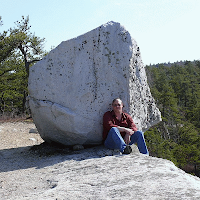Been watching a great series of lectures by Joseph Campbell called Mythos (actually a two volume set of lectures titled Mythos I
[By the way, as an aside, my wife and I received a great gift from her brother this Christmas. It's called a Roku  and it allows us to watch streaming Netflix movies on our TV. Took about 5 minutes to set up, works with our wireless router, and has other neat content available as well. I love it!]
and it allows us to watch streaming Netflix movies on our TV. Took about 5 minutes to set up, works with our wireless router, and has other neat content available as well. I love it!]
 Anyway, Dr. Campbell (1904-1987) was a professor at Sarah Lawrence College in New York for 38 years and was widely recognized as a world expert in comparative mythology publishing many papers, articles, and books (including the four-volume The Masks of God
Anyway, Dr. Campbell (1904-1987) was a professor at Sarah Lawrence College in New York for 38 years and was widely recognized as a world expert in comparative mythology publishing many papers, articles, and books (including the four-volume The Masks of God1. Psyche and Symbol -- The psychological impulse for and response to myth.
2. The Spirit Land -- How myths awakened American Indians to the mystery of life.
3. On Being Human -- The emergence of myth in early hunter-gatherer societies.
4. From Goddess to God -- The gradual shift from the Goddess to male, warlike deities.
5. The Mystical Life -- Non-biblical mythic strains hat helped shape the Western spirit.
Highly recommended if you're interested in mythology - not as quaint stories from the ancient past that our non-scientific ancestors believed in, but as powerful beliefs all cultures, including our modern culture, still share.




I need to see those. I've read practically every book ever written by Campbell, and I love him. I've gotten a lot of story ideas from that man, not to mention learned how to tell stories better.
ReplyDelete